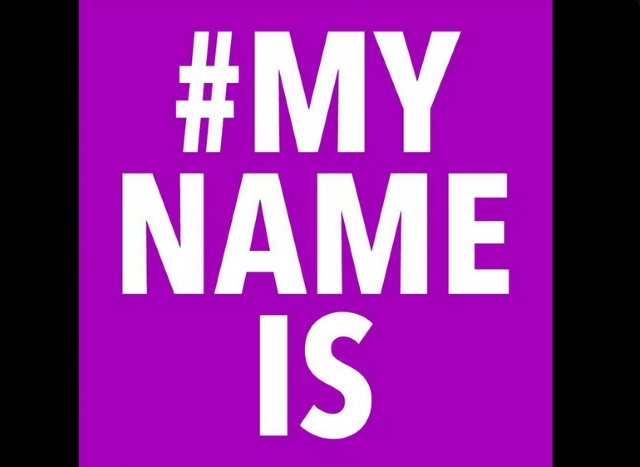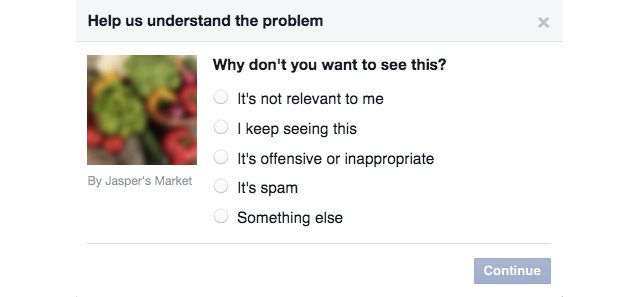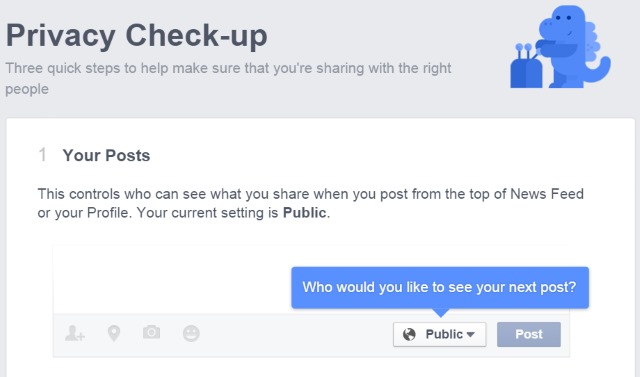
Stop poking us! Cops say Facebook arguments hinder crime solving
Petty Facebook rows are preventing police from "reducing and detecting crime", according to a policing team in Wiltshire, UK.
A sergeant for the neighborhood policing teams of Wootton Bassett, Malmesbury and Cricklade has urged people not to call for help with Facebook incidents and rows unless it relates to domestic disputes/crimes or other serious issues.

Right to Be Forgotten hits social networks hardest [Infographic]
The "right to be forgotten" is something that was expected to take Europe by storm. A court ruling gave people the right to get in touch with search engines like Google and Bing to ask that results relating to them be removed -- assuming they are "inadequate, irrelevant or no longer relevant". One of the services that popped up after the ruling was Forget.me, making it simple to submit removal requests.
Three months down the line, we have access to the first set of figures relating to requests, and they show that social networks are the most affected type of website.

In a terrifying future, Facebook could venture into healthcare
Facebook gets bashed about privacy concerns, its real name policy, and the proliferation of ads that litter the social network. It's easy to complain about who has access to your photos and status updates, but how would you feel about handing over your private health details to Zuckerberg's baby?
In a move that will strike fear into users of the social network, Facebook is apparently considering branching out into healthcare by providing what are being described as "support communities". The news comes from Reuters which quotes three sources who requested anonymity.

Facebook admits it screwed up, but its proposed research guidelines are meaningless
Facebook is no stranger to controversy, nor is the social network unfamiliar with upsetting its users. It seems as though Zuckerberg's baby has been hitting the headlines for all the wrong reasons lately, and it's not all that long since users vented their fury after it was revealed that their newsfeeds had been manipulated in the name of research. Now the social network says that it was "unprepared for the reaction the paper received when it was published and have taken to heart the comments and criticism" and is now implementing new user research guidelines.
"There are things we should have done differently" may seem like something of a half-hearted admission that mistakes were made, but it's the second semi-apology from Facebook this week. Research into how people use the social network will still continue, but Facebook now says "we want to do it in the most responsible way." So what does this actually mean?

Facebook rolls out mobile Like button to iOS and Android app developers
As any Facebook user knows, 'liking' content online has become almost second nature. Facebook has Likes, Google+ has +1s, and various other variations exist. But it is Facebook's Like button that reigns supreme -- regardless of the privacy concerns it may raise. Today Facebook is expanding its Like feature so that mobile app developers can take advantage of it. Not just content with giving web users the chance to indicate their approval of a particular Facebook post or online article, it is now possible to 'like' any piece of content within a supported app on iOS and Android.
It's a feature that is likely to be picked up very quickly by game developers, so you can expect to see notifications in the near future letting you know that your Facebook friends like level 118 of Candy Crush Saga. The feature was previewed earlier this year, but is now being made available to any developer who wants to use it. Facebook says:

Facebook apologizes to LGBT community, 'backs down' on real name policy
Facebook has issued an apology to "drag queens, drag kings", and the LGBT community for forcing users of the social network to reveal their real names or face having their pages suspended. The social network also bowed to pressure, saying that users will not necessarily have to use their real names in the future. Chris Cox, Facebook's Chief Product Officer, made a statement in an online post that admits the negative response to the policy "took us off guard". Why the sudden interest in real names? It seems that one person may have been to blame.
Facebook caused something of a storm of controversy recently when it forced many users to reveal their real names. Large groups of people were affected by this, but it was a number of drag artists who were most vocal in their complaints -- numerous petitions and campaigns, including #MyNameIs, started up. While it was drag queens who hit the headlines, Facebook's sudden enforcement of its long-standing real names policy also affected performers such as musicians -- fans and friends were confused when seemingly new people appeared in their friend list. Despite the backlash Facebook faced, the social network stuck to its guns, remaining adamant that the policy was here to stay, and dismissing complaints out of hand.

There is no escape -- with Atlas, Facebook ads follow you between devices
How much do you hate ads? How much do ads piss you off? Well prepare to turn into an even bigger ball of hate-filled pissed-off-ness when you hear about Facebook's latest ventures in advertising. Few people would argue against the suggestion that Facebook has all but given up any pretence of being a social network and has become little more than a huge cog in a massive advertising machine. Claims have been made that ads are being made more relevant to users, but the truth of the matter is that users are being made more relevant to advertisers. And Facebook now has a whole new way to follow you around the web to make sure you are delivered even more better-targeted ads.
Facebook has been criticized for forcing users to reveal their real names -- information which is as valuable to advertisers as it is anything to do with security -- and there have long been concerns about privacy settings on the site. Users of Facebook may complain that their newsfeeds are cluttered with news and posts at the wrong time, but one of the biggest issues people have with the site is with ad delivery. Last week we learned that Facebook was on the verge of revealing something "more powerful than what Google can currently do" in terms of user tracking. Facebook has now launched Atlas, an ad platform that can track users as they move from desktop to mobile devices -- and it's sure to raise plenty of privacy hackles.

Bye bye, Facebook. Hello, Ello?
It's very easy -- some would say fun -- to bash social networks. MySpace was a very easy target, and Twitter comes in for criticism from time to time, but it's Facebook that tends to bear the brunt of people's ire. Mark Zuckerberg's social (advertising) network hits the headlines quite frequently, but it's been on the lips of many in recent weeks after starting to aggressively implement its "real name" policy. It's something that initially upset drag artists around the world but it's also something that affecting musicians and other artists who have opted to use a stage name. In recent days another name has bubbled to the surface. It's not brand new, but Ello has been hard to avoid over the last few days. What’s going on?
It's clear that the fallout from the drag artist incident that social network users have been seeking out new homes where they are free to be whatever they want to be. This is something that Ello seems to offer. If you want to hide behind a pseudonym, adopt a different online persona, run multiple account under different names, pretend to be someone else, or just smirk at the fact you can call yourself Farty McPoopButt if you feel so inclined, you're onto a winner here.

Facebook's Atlas ad platform set to challenge Google's dominance
Facebook is ready to shake up its advertising efforts through a new platform that has already been dubbed by some as having the potential to be more powerful than Google’s current offering.
Atlas, which should be announced next week, allows marketers to track Facebook users that have seen, interacted with or acted upon ads on the social network, as well as third party sites and applications.

Facebook to fire news at you faster than ever
Part of the point of Facebook, in addition to making it easier to keep in touch with people, is to keep abreast of news. The social network's algorithms are such that you don’t just see a chronological stream of updates from the people, companies, and pages you follow -- stories can 'surface' in a seemingly random order, and may appear some time after they were actually relevant. Facebook is aware that it can deliver posts in something of an untimely fashion, and it's now going to do something about it. It makes a change from forcing users to display their real names...
The social network is rolling out a couple of updates that will help to ensure that stories that appear in your News Feeds are more relevant. There have been complaints that Facebook is slow to start pushing trending topics -- be it sports events or big news stories -- and this is being addressed. Should friends of yours link to, or interact with, a story that is currently trending, it is "more likely to appear higher up in News Feed, so you can see it sooner". You may well have thought that this is how things worked before, but apparently this is not the case.

Facebook is going to start taking notice of why you hate certain ads
Adverts are pretty much universally hated online. Sites can try to justify their presence as much as they like but visitors will still view them with loathing. Among the many complaints levelled at Facebook, the irrelevance of many of the advertisements that appear on users' pages is a major cause of complaints. For quite some time now Facebook has given users the chance to voice a dislike of individual ads -- opt to hide an ad via the official Facebook method and you can indicate that you find it irrelevant, offensive, repetitive, spammy, and so on -- but it has been hard to know just how much notice has been taken of these complaints. Now Facebook wants to assure users that it is listening and that more relevant ads will be displayed.
Hopefully this can be taken to mean "ads that are more relevant" rather than "there will be more ads and they will be relevant", but the point is that Facebook wants to ensure that you see ads that might actually be of interest. Two new updates will help to tailor your ad experience. The first seems like a fairly obvious one:

Facebook's 'real name' policy is wrong, discriminatory, and potentially dangerous
Facebook's policy requiring the use of real names on the social network is not all that new, but it remains controversial. Many users would like to be able to use a nickname (other than the "variation of your real first or last name" permitted by the site), but Facebook continues to insist that forcing the revelation of birth name "helps keep our community safe". Or does it? There's certainly an argument that suggests it makes sense to know who you are dealing with, but this cannot be a one-size-fits-all policy. There will always be exceptions, and this is something highlighted by ReadWrite.
As Selena Larson points out, there are many people who choose to use "pseudonyms online for both safety and personal reasons". And yet the site is trying to force Sister Roma -- a drag artist and member of Sisters of Perpetual Indulgence, a "leading-edge Order of queer nuns" -- to use her birth name rather than what is being regarded as her stage name. Who is Facebook to try to interfere with this? This is the site that only recently was encouraging its users to boost their privacy by checking the settings they had in place. It smacks of giving with one hand and taking with the other.

Yahoo resisted NSA Prism requests -- US government threatened $250,000 daily fines
It's transparency time once again! After Edward Snowden opened the can of NSA surveillance worms, internet users' collected attention has been focused on online privacy. We still don’t know the full extent of the monitoring that took place, but more information continues to leak out. All of the big names -- Google, Apple, Microsoft, Facebook, and the rest -- have slowly trickled out little snippets about government data requests. A new blog post from Yahoo's general counsel Ron Bell sheds further light on the resistance the company put up against requests for data.
Just like Google and Microsoft, Yahoo is keen to let it be known that it tried to stick up for the privacy rights of its customers. A new cache of documents -- stretching to War And Peace baiting 1,500 pages -- from seven years ago shows just how much of a fight Yahoo tried to put on its users' behalves. Way back in 2007, the US government started to request information about users from a number of online companies. Yahoo was one of the companies who -- initially, at least -- refused to comply, and tried to fight the government in court.

Facebook celebrates 1 billion daily video views with new view count feature
As demonstrated by the infuriatingly popular #ALS Ice Bucket Challenge phenomenon, video on Facebook is more popular than ever. If you were in any doubt about just how popular these magic moving pictures really are, the social network announces that it is racking up an incredible 1 billion video views every day.
But have you ever wondered how many other people have wasted their time watching yet another video of crazy Russian drivers, drunken debauchery, or amusing animal antics? Wonder no more! Starting this week, Facebook is rolling out a new feature that shows how many views a particular video clip has received.

Facebook rolls out Privacy Checkup feature to users around the world
We now live in an age where privacy is a key concern. Facebook has long been criticized for its somewhat lackadaisical attitude to the privacy of user data, and over the years various steps have been taken to afford Facebookers greater control over who is able to see their status updates and other data. First announced back in May, the social network is now rolling out its Privacy Checkup feature around the world, giving users the chance to check exactly who they are sharing information with.
The new tool does not really introduce any new features, but it does bring existing security controls to the fore. Privacy Checkup should make itself known over the next few days by popping up when you use Facebook, but it can be accessed whenever you want by clicking the privacy lock icon to the upper right of the page. For some reason, the face of Privacy Checkup is a friendly blue dinosaur, sort of like a prehistoric version of Clippy.
